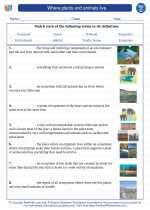Commensalism
Commensalism is a type of ecological relationship between two species in which one species benefits and the other is neither helped nor harmed. In this relationship, one organism is provided with a benefit, such as food, shelter, or transportation, while the other organism is unaffected. This type of interaction is often seen in the natural world and plays an important role in the balance of ecosystems.
Examples of Commensalism
1. Orchids growing on trees: Orchids are epiphytic plants that grow on the branches of trees. They benefit from being elevated and exposed to more sunlight, while the trees are not affected.
2. Barnacles on whales: Barnacles attach themselves to the skin of whales, using them for transportation and access to food particles in the water, while the whales are not significantly impacted.
3. Remoras and sharks: Remoras attach themselves to sharks and feed on the remains of the sharks' meals, without harming the sharks.
Study Guide
Here are some key points to remember about commensalism:
- Commensalism is a type of ecological relationship in which one organism benefits and the other is not affected.
- It is different from mutualism, where both organisms benefit, and parasitism, where one organism benefits at the expense of the other.
- Examples of commensalism can be found in various ecosystems, including marine environments, forests, and grasslands.
- Understanding commensalism helps us appreciate the complex interactions and interdependencies in nature.
Now that you understand commensalism, you can explore more examples in nature and consider its role in maintaining the balance of ecosystems.
.◂Science Worksheets and Study Guides Third Grade. Where plants and animals live
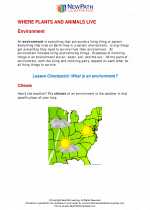
 Worksheet/Answer key
Worksheet/Answer key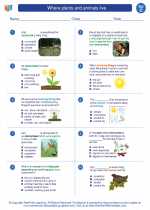
 Worksheet/Answer key
Worksheet/Answer key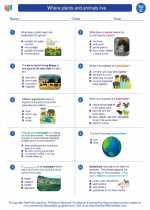
 Worksheet/Answer key
Worksheet/Answer key
 Vocabulary/Answer key
Vocabulary/Answer key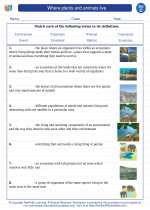
 Vocabulary/Answer key
Vocabulary/Answer key